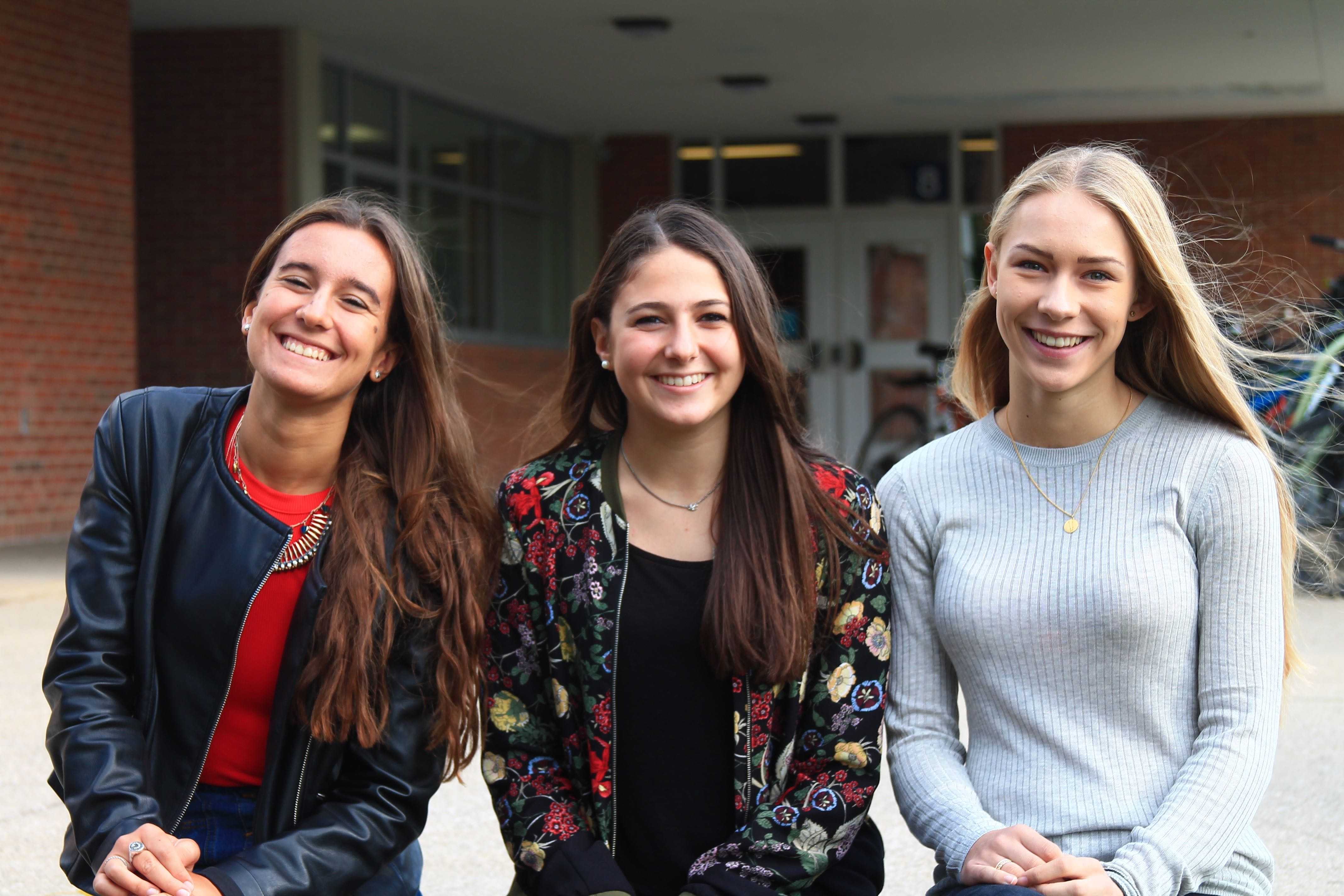Foreign exchange students embark on a transformative journey, immersing themselves in new cultures, broadening their perspectives, and forging lasting global connections.
Participating in foreign exchange programs offers a wealth of benefits, fostering personal growth, academic enrichment, and a deep appreciation for cultural diversity.
Defining Foreign Exchange Student
A foreign exchange student is an individual who travels to a foreign country to study for an extended period of time, typically one academic year. The purpose of foreign exchange programs is to provide students with an opportunity to immerse themselves in a new culture, learn a new language, and gain a global perspective. These programs are designed to foster cross-cultural understanding and promote international friendship.
Purpose and Goals
The goals of foreign exchange programs include:
- To provide students with an opportunity to experience life in a different country.
- To help students learn about a new culture and language.
- To develop students' independence and self-reliance.
- To promote cross-cultural understanding and friendship.
Benefits of Being a Foreign Exchange Student
Participating in a foreign exchange program offers a wealth of personal and academic benefits that can shape an individual's life in profound ways. It provides an immersive experience that broadens horizons, fosters cultural understanding, and enriches perspectives.
Personal Benefits, Foreign exchange student
- Enhanced Self-Confidence and Independence: Navigating a foreign environment requires students to step outside their comfort zones, develop self-reliance, and adapt to new situations.
- Cultural Sensitivity and Tolerance: Living among people from different backgrounds fosters empathy, appreciation for diversity, and a deeper understanding of global perspectives.
- Improved Language Proficiency: Immersing oneself in a foreign language environment accelerates language acquisition, enhances communication skills, and expands vocabulary.
Academic Benefits
Beyond personal growth, foreign exchange programs also provide significant academic advantages:
- Exposure to Different Educational Systems: Students gain insights into alternative teaching methods, curricula, and educational practices, expanding their knowledge and perspectives.
- Increased Global Competitiveness: International experience enhances employability and competitiveness in a globalized job market, where cross-cultural understanding and adaptability are highly valued.
- Preparation for Higher Education: Foreign exchange programs can provide a strong foundation for future academic pursuits, particularly in fields related to international relations, global studies, or foreign languages.
Challenges of Being a Foreign Exchange Student
Being a foreign exchange student can be an enriching and transformative experience, but it also comes with its own set of challenges. These challenges can range from language barriers and cultural differences to homesickness and financial concerns.
Check what professionals state about foreign exchange market live chart and its benefits for the industry.
Language Barriers
One of the biggest challenges foreign exchange students face is the language barrier. Students who come from non-English speaking countries may struggle to communicate with their host families, classmates, and teachers. This can make it difficult to make friends, participate in class, and adjust to their new environment.
Cultural Differences
Cultural differences can also be a challenge for foreign exchange students. Students may come from cultures with different values, beliefs, and customs. This can lead to misunderstandings and culture shock.
Homesickness
Homesickness is a common challenge for foreign exchange students. Students may miss their families, friends, and home country. This can make it difficult to adjust to their new environment and focus on their studies.
Obtain access to participants in foreign exchange market pdf to private resources that are additional.
Selecting a Foreign Exchange Program

Choosing the right foreign exchange program is crucial to ensure a rewarding and successful experience. Consider the following factors when making your selection:
Program Duration: Determine the optimal length of your exchange, considering your academic schedule, personal goals, and financial resources.
Location: Research different countries and regions to find a destination that aligns with your interests, cultural preferences, and language learning goals.
Support Services: Assess the program's support system, including orientation, academic advising, housing arrangements, and emergency assistance.
Program Costs
- Compare program fees, including tuition, accommodation, meals, and any additional expenses.
- Consider the cost of living in your chosen destination and budget accordingly.
Program Reputation
- Research the program's reputation and track record.
- Read reviews from previous participants and consult with your school or university's international office.
Program Structure
- Review the program's curriculum, course offerings, and extracurricular activities.
- Ensure the program aligns with your academic goals and interests.
Preparing for a Foreign Exchange Experience
 Embarking on a foreign exchange experience can be an enriching and transformative journey. To ensure a smooth and fulfilling experience, meticulous preparation is essential.
Embarking on a foreign exchange experience can be an enriching and transformative journey. To ensure a smooth and fulfilling experience, meticulous preparation is essential. Necessary Steps
Preparing for a foreign exchange experience involves several key steps:- Obtain necessary documents: Secure a passport, visa (if required), and any other essential travel documents.
- Pack wisely: Consider the climate, cultural norms, and duration of your stay when packing clothing, toiletries, and other essentials.
- Conduct cultural research: Familiarize yourself with the host country's customs, traditions, and social etiquette to avoid cultural misunderstandings.
Additional Considerations
Beyond the practical preparations, there are additional considerations to enhance your experience:- Learn basic language skills: Even a rudimentary understanding of the local language can facilitate communication and cultural immersion.
- Stay connected: Inform your family and friends of your travel plans and arrange for communication methods while abroad.
- Be open-minded and adaptable: Embrace the differences you encounter and be willing to adjust to new perspectives and ways of life.
Immersion in a New Culture: Foreign Exchange Student
Immersing yourself in the host culture is crucial for a transformative foreign exchange experience. It allows you to embrace the unique perspectives, customs, and values of your new surroundings. Connecting with locals is essential. Engage in conversations, ask questions, and actively participate in social gatherings. Language learning is equally important. Take classes, practice regularly, and make an effort to use the local language in daily interactions. Participate in local activities and events. Attend festivals, visit historical sites, and sample traditional cuisine. These experiences provide invaluable insights into the host culture and foster a sense of belonging. Connecting with Locals: - Join local clubs or groups based on your interests. - Attend community events and festivals. - Engage in conversations with people you meet at markets, cafes, or public transportation. - Ask locals for recommendations on places to visit and things to do.Role of the Host Family

Host families play a pivotal role in supporting foreign exchange students by providing a safe, welcoming, and enriching environment. They serve as cultural ambassadors, facilitating the student's integration into the local community and fostering their personal growth.
You also can investigate more thoroughly about functions and significance of foreign exchange market to enhance your awareness in the field of functions and significance of foreign exchange market.
Responsibilities and expectations of both parties include:
Responsibilities of the Host Family
- Provide a comfortable living space and meals.
- Offer emotional support and guidance.
- Help the student adjust to the new culture and lifestyle.
- Facilitate the student's participation in local activities and events.
- Respect the student's privacy and cultural differences.
Responsibilities of the Foreign Exchange Student
- Respect the host family's rules and values.
- Participate actively in family life and contribute to household chores.
- Communicate openly and honestly with the host family.
- Be respectful of the host family's privacy and belongings.
- Make an effort to learn about the local culture and language.
Impact on Host Communities
Foreign exchange students bring a wealth of benefits to their host communities, fostering cultural exchange and understanding.
They serve as cultural ambassadors, sharing their own traditions, perspectives, and languages with their host families and communities. This exposure to diverse cultures promotes tolerance, empathy, and a broader worldview among the host community members.
Enriching Educational Experiences
Foreign exchange students can also enrich educational experiences for local students. By attending local schools, they share their knowledge and insights, exposing their peers to different educational systems and global perspectives. This interaction can foster a sense of global citizenship and encourage local students to explore international opportunities.
Economic Benefits
In addition to cultural and educational benefits, foreign exchange students can also contribute economically to their host communities. They often bring additional income to local businesses, such as language schools, homestays, and tourist attractions. Their presence can also stimulate the local economy by encouraging tourism and promoting international connections.
End of Discussion
Foreign exchange experiences not only enrich the lives of the students but also contribute to a more inclusive and interconnected global community. By embracing new cultures and perspectives, these students become ambassadors for understanding and bridge-builders across borders.
